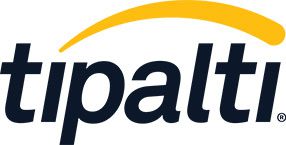
Despite advances in technology and the adoption of cloud accounting software over the last decade, it is still all too common for businesses to complete many finance processes manually. In fact, we know from our recent research, that nearly a third (29%) of CFOs in the UK are dealing with more manual financial operations than ever before. Not only is this wasteful in time and money, it is also holding back finance leaders from working on important strategic initiatives. Similarly, we know that driving international expansion, incorporating environment, social and governance (ESG) and sustainability and dealing with changes brought about by the global pandemic plus Brexit are all causing complexity for already-busy CFOs.
The key is to understand that finance teams must evolve if they are to be at the strategic heart of a business, instead of being siloed and viewed as only fulfilling statutory requirements, adoption of automation technology is vital. Any resistance around adopting such technology – which often possesses the perception that manual operations are ‘good enough’, need squashing. Instead, the focus should be on understanding the benefits the finance function can bring to businesses. The essence: apply new tools to automate everyday tasks, such as payroll, accounts payable, purchase order management, invoice management, group consolidation, and expense management. This will increase the efficiency of finance teams, allowing them to produce fast and high-quality information. In turn, stakeholders will benefit from increased agility to act on timely management information.
To comprehend what is possible, here are some of the specific benefits businesses that modernise their finance department will see…
Payroll
Payroll is a critical finance task. Employees are one of the most important assets within any business. Therefore it is vital to keep them happy by paying them accurately and on time. That said, it is far too easy to fail to submit up-to-date information about employee changes (for example, leavers and joiners as well as pay changes and implementing accurate employee tax codes). Payroll completion also has added the pressure of time sensitivity: it needs completion according to precise and tight deadlines, each week or month or quarter.
Payroll systems typically exist in siloes. Lack of connections means finance teams have to manually key in or export data to core accounting software and banking providers. Yet, most payroll processes are automatable using solutions that do connect accounting software and banking providers. The result is an all-in-one workflow that saves time as well as reduces the chance of human error caused by the need to move data into different systems, either manually or by exporting and importing CSV files. One spectacular benefit is avoiding having to recreate payroll journals, a notoriously fiddly task.
Accounts Payable (AP)
Similar to payroll, AP is an essential and regular task for finance teams. Ordinarily completed once a week or fortnight, it takes significant time to collate all invoices, enter payment details onto banking platforms and obtain the necessary approvals for payment.
Incorporating vendors that leverage automation to facilitate multiple approvals, and connect payment data from accounting software with banking and payments, removes the existing friction associated with payment runs. Instead, they can completely seamlessly, which has the additional benefit of reducing risks associated with manual payment errors and fraud. A different consequence is better supplier relationships. Offering visibility of payment status and enabling proactive communication to suppliers enhances trust while helping reduce the likelihood of late payment of invoices and associated late payment penalty fees.
Many AP solutions reconcile payments automatically. This saves yet more time. More time means it becomes possible to address higher-value tasks.
Purchase Orders (POs)
POs play a key role in financial control. Many companies insist on their use for spend above a particular financial threshold. The creation and approval of POs is a common pain point, not least because there can be a disconnect between budget owners and suppliers: invoices raised against incorrect or fully utilised PO numbers is costly.
Using an automated PO tool that integrates to the core accounting platform streamlines processes. They can be created on the fly, or from approved forecasts. Additionally, auto-matching of invoices (when received) to PO numbers eliminates the risk of incorrect assignments and subsequent delays in paying critical suppliers.
Group Consolidation
A number of core accounting software providers do not include functionality that consolidates at a group level. Finance professionals ‘get around’ this by exporting figures for individual companies into spreadsheets and manually making adjustments to consolidate a group’s companies. Besides the risk of entering data incorrectly and potential delays to month-end closing, this approach requires much judgement. For example, there can be the need to consider which exchange rates to use or what adjustments to make depending on which accounting standards apply to the parent company. For example, this may include whether to recognise unreleased foreign currency gains/losses in the balance sheet or profit and loss, or how to treat revenue recognition.
Using accounting software with consolidation features, or introducing a third-party consolidation package, ensures consistent treatment across all group companies. In so doing it spares finance employees from all the hassles of exporting, importing and manipulating accounts data.
Expense Management
Managing employee expenses has historically been a chore for finance teams. Just think of the pain in having to chase colleagues for their expenses reports at month-end, alongside obtaining the necessary approvals from managers. Additionally, the quality of submitted reports is often irregular – with receipts missing and spend allocated to incorrect accounting categories.
Embracing an automated expense management solution allows for easy upload of supporting receipts, OCR data extraction and easy imports into accounting software. This produces more accurate expense reports as well as improved employee and manager satisfaction.
Management conclusion
As CFOs’ roles and responsibilities grow, there is an increasing pressure on finance teams to focus on tasks that help grow the business. This means it becomes ever more essential to adopt finance automation as part of businesses’ wider digital transformation plans.
Embracing automation for all of the above tasks will benefit both finance teams and the wider business. Finance team members will be able to use their time to produce up-to-date reports, to provide improved financial and operational insights into company performance, to grow sales to optimise KPIs and to finetune acquisition channels.

Tipalti enables high-growth companies to scale quickly by making payables strategic with operational, compliance, and financial controls. Companies can efficiently and securely pay thousands of partners and vendors in 196 countries within minutes. Thousands of companies, such as Amazon Twitch, National Geographic, Business Insider, Hopin, Cazoo and Time Out use Tipalti to reduce operational workload by 80 percent and accelerate the financial close by 25 percent, while strengthening financial controls and spend visibility.
























